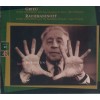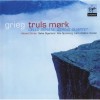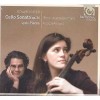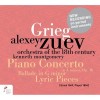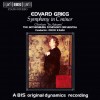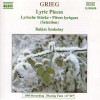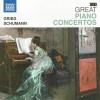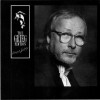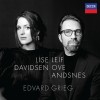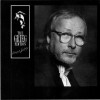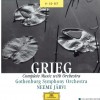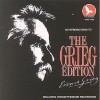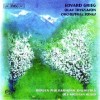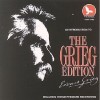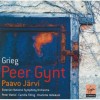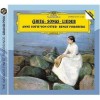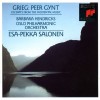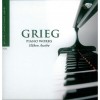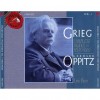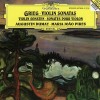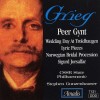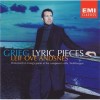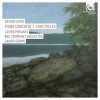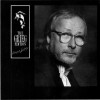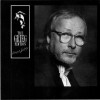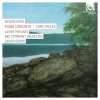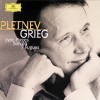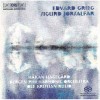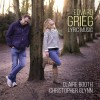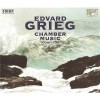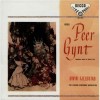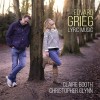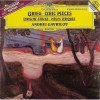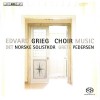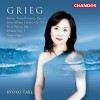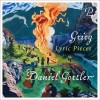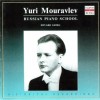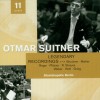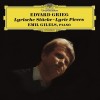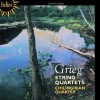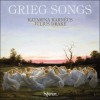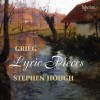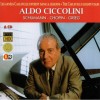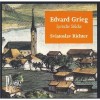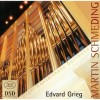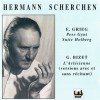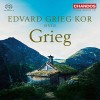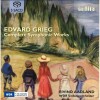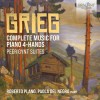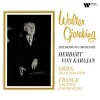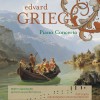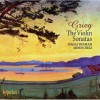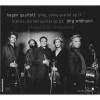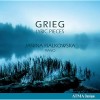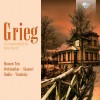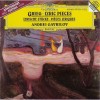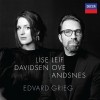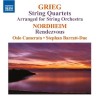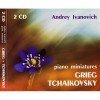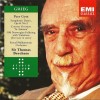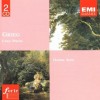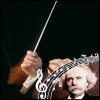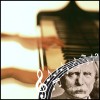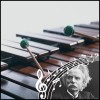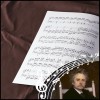| Country: | Norway |
| Period: | Romantique |
Biography
Edvard Grieg is a Norwegian composer and pianist who belong to a Romantic period. He composed a lot of musical compositions of that era. Edvard was best known for his Piano Concerto in A minor, and also for his collection of piano miniatures Lyric Pieces and incidental music to Henrik Ibsen's play Peer Gynt.
Grieg Edvard was born on 15th of June, 1843 in Bergen, Norway. His original family name, that was spelled as [Greig] indicates that Grieg Edvard was originally from Scotland. Grieg Edward’s great-grandfather settled in Norway, after the Battle of Culloden, around 1770 and established business interests in Bergen.
Edvard was raised up in a musical family, his mother, Gesine B. Hagerup, was his first piano teacher, who taught him to play when he was just six years old. Later he studied music in several schools including Tank's School, and often brought in examples of his music to class.
In the summer of 1858, Grieg met with a very eminent Norwegian violinist Ole Bull, who was a friend of Edvard’s family. He noticed the 15 years old Edvard’s talent and persuaded his parents to send him to develop his talents further at the Leipzig Conservatory directed by Ignaz Moscheles.
Initially he had admission in a conservatory. Here he concentrated on the piano study and participated in many concerts performed in Leipzig. He scored very good grades in most areas, except the organ playing, which was mandatory for piano students.
In 1860, Edward Grieg suffered from a lung disease. Next year Edward made his debut as a concert pianist, in Karlshamn, Sweden. In 1862, Edward Grieg finished his studies in Leipzig, and performed his first concert in his home town of Bergen. The major programme of his concerts was Beethoven's Pathétique sonata.
In 1863, Edward Grieg visited Copenhagen, Denmark, and lived there for three years. During his stay he met with Rikard Nordraak, Danish composers J. P. E. Hartmann and Niels Gade.
Nordraak, who was a Norwegian composer, developed a strong friendship with Edward. Nordraak died in 1866, and Grieg composed a funeral march in his honor. On the 11th of June 1867, Edward got married with his first cousin Nina Hagerup. They both spent a happy life and got only child, Alexandra.
Next summer, Grieg wrote his Piano Concerto in A minor while on holiday in Denmark. This Piano Concerto was premiered on 3 April 1869 in the Casino Theater in Copenhagen. Neupert gave the concerto of this piece.
In 1868 Franz Liszt, who had not yet met Grieg, wrote a testimonial for him to the Norwegian Ministry of Education, which led Grieg to obtaining a travel grant. The two men met in Rome in 1870.
In 1876 Grieg composed an incidental music, on the request of his fellow composers for the premiere of Ibsen's play “Peer Gynt”. Many pieces of this work became very popular in the orchestral suites of piano and piano-duet arrangements.
In 1888 Grieg met Tchaikovsky in Leipzig, who said, that Grieg’s music contained beauty, warmth and originality. After that, The Norwegian government awarded him a pension and thus his later life opened the new doors of fame for him.
In 1903, Edward Grieg made nine 78-rpm gramophone piano music recordings in Paris. Similarly, he also made live-recording by playing piano music, for the Welte-Mignon reproducing system, which we can hear even today.
No doubt, Edward Grieg is a very renowned nationalist composer, who always wrote music inspired by Norwegian folk. Grieg’s early music works also include a symphony and a piano sonata. He also composed three sonatas for violin, piano and a cello sonata. A lot of Grieg’s short pieces for piano are often based on Norwegian folk tunes and dances.
Grieg’s Piano Concerto will always be popular for his creative musical work, which was composed for his close friend namely Percy Grainger, a pianist and composer.
Some of his Lyric Pieces for piano are also well-known for their incidental music. Similarly, he wrote Holberg Suite for the piano, which later was written by the composer for string orchestra. Grieg also wrote many songs, followed by the lyrics of poets like Heinrich Heine, Johann Wolfgang von Goethe and others.
In 1906, Edward met with a famous composer and pianist Percy Grainger in London, who was a great admirer of Grieg's music. Edvard Grieg died in 1907, after a long illness. When he died he was about 64 years old. At the time of Edvard death, his final words were "Well, if it must be so".
There were about 30,000 people at the funeral ceremony of Grieg, who came in his home town to honor him. Edvard Griegэы funeral march for Rikard Nordraak was played in an orchestration by his friend, Johan Halvorsen, according to the last wish of Edvard Grieg.
Afterwards Johan Halvorsen got married with Grieg's niece. On the day of the famous funeral March of Edvard Grieg, there was another march, played by Frédéric Chopin. He and his wife's ashes are entombed in a mountain crypt near his house, Troldhaugen.





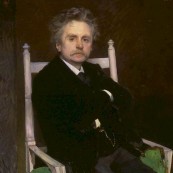

![Russian legends - David Oistrakh [20 CD]](http://static.classicalm.com/repository/collection-cover/small/267-img1318418713553266.jpg)
![Russian legends - Leonid Kogan [10 CD]](http://static.classicalm.com/repository/collection-cover/small/269-img1318707830156876.jpg)
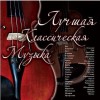
![Steinway Legends - Emil Gilels [2 CD]](http://static.classicalm.com/repository/collection-cover/small/235-img1316856590105306.jpg)
![Top 100 der Klassik [CD 1 of 5]](http://static.classicalm.com/repository/collection-cover/small/1364-img1372589941705257.jpg)
![Top 100 der Klassik [CD 2 of 5]](http://static.classicalm.com/repository/collection-cover/small/1365-img1372592354874210.jpg)
![Top 100 der Klassik [CD 3 of 5]](http://static.classicalm.com/repository/collection-cover/small/1366-img1372593555699508.jpg)
![Top 100 der Klassik [CD 4 of 5]](http://static.classicalm.com/repository/collection-cover/small/1367-img1372594763111487.jpg)
![Deutsche Grammophon Classic Gold [CD 3 of 3]](http://static.classicalm.com/repository/collection-cover/small/1316-img1361384204300956.jpg)





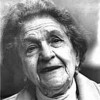
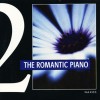
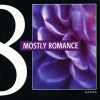
![The Top 100 Masterpieces of Classical Music 1685-1928 [CD7of10]](http://static.classicalm.com/repository/collection-cover/small/1359-img1372446248695097.jpg)
![The Top 100 Masterpieces of Classical Music 1685-1928 [CD8of10]](http://static.classicalm.com/repository/collection-cover/small/1360-img1372447516287674.jpg)
![The Top 100 Masterpieces of Classical Music 1685-1928 [CD9of10]](http://static.classicalm.com/repository/collection-cover/small/1361-img1372448419453391.jpg)
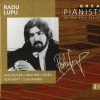
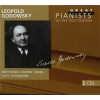

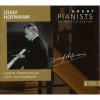
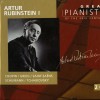
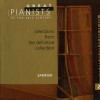
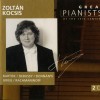
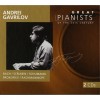
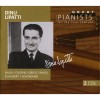
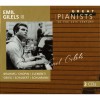
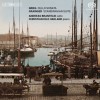
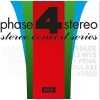
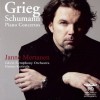
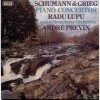

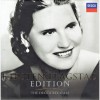
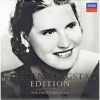
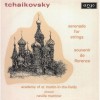
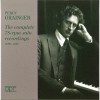
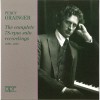
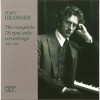
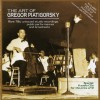
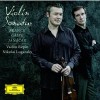
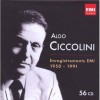
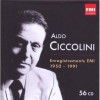

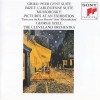

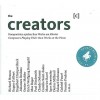
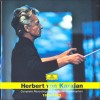
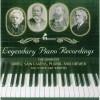
![The 100 Most Beautiful Melodies [CD 2 of 6]](http://static.classicalm.com/repository/disk-cover/small/2911-img1361460313445296.jpg)
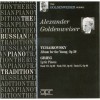
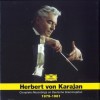
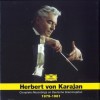
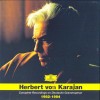

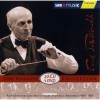

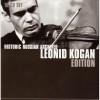
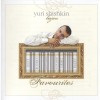
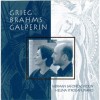
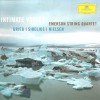

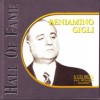
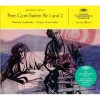
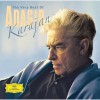
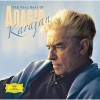
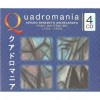
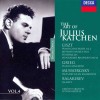
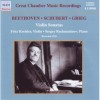
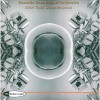

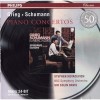

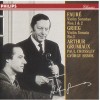
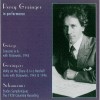

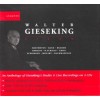
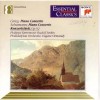
![Herbert von Karajan - Sternstunden der Musik [CD1of3]](http://static.classicalm.com/repository/disk-cover/small/3677-img1406715347234224.jpg)
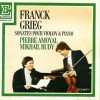
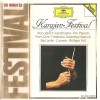
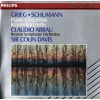
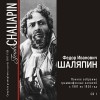
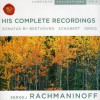
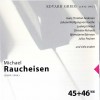
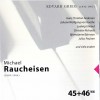
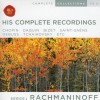
![The Complete Josef Hofmann, Volume 3 [2 CD]](http://static.classicalm.com/repository/disk-cover/small/829-img1316006934873331.jpg)
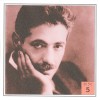
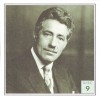
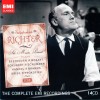

![Richter in Hungary, Volume 7 [2 CD]](http://static.classicalm.com/repository/disk-cover/small/889-img1316387569300945.jpg)
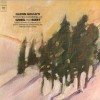
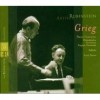
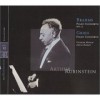
![The Heifetz Collection, Volume 9 [2 CD]](http://static.classicalm.com/repository/disk-cover/small/935-img1316984135213633.jpg)
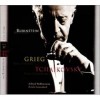
![The Heifetz Collection, Volume 2 [3 CD]](http://static.classicalm.com/repository/disk-cover/small/717-img1315129517717299.jpg)
![The Heifetz Collection, Volume 3 [2 CD]](http://static.classicalm.com/repository/disk-cover/small/719-img1315174118757085.jpg)
